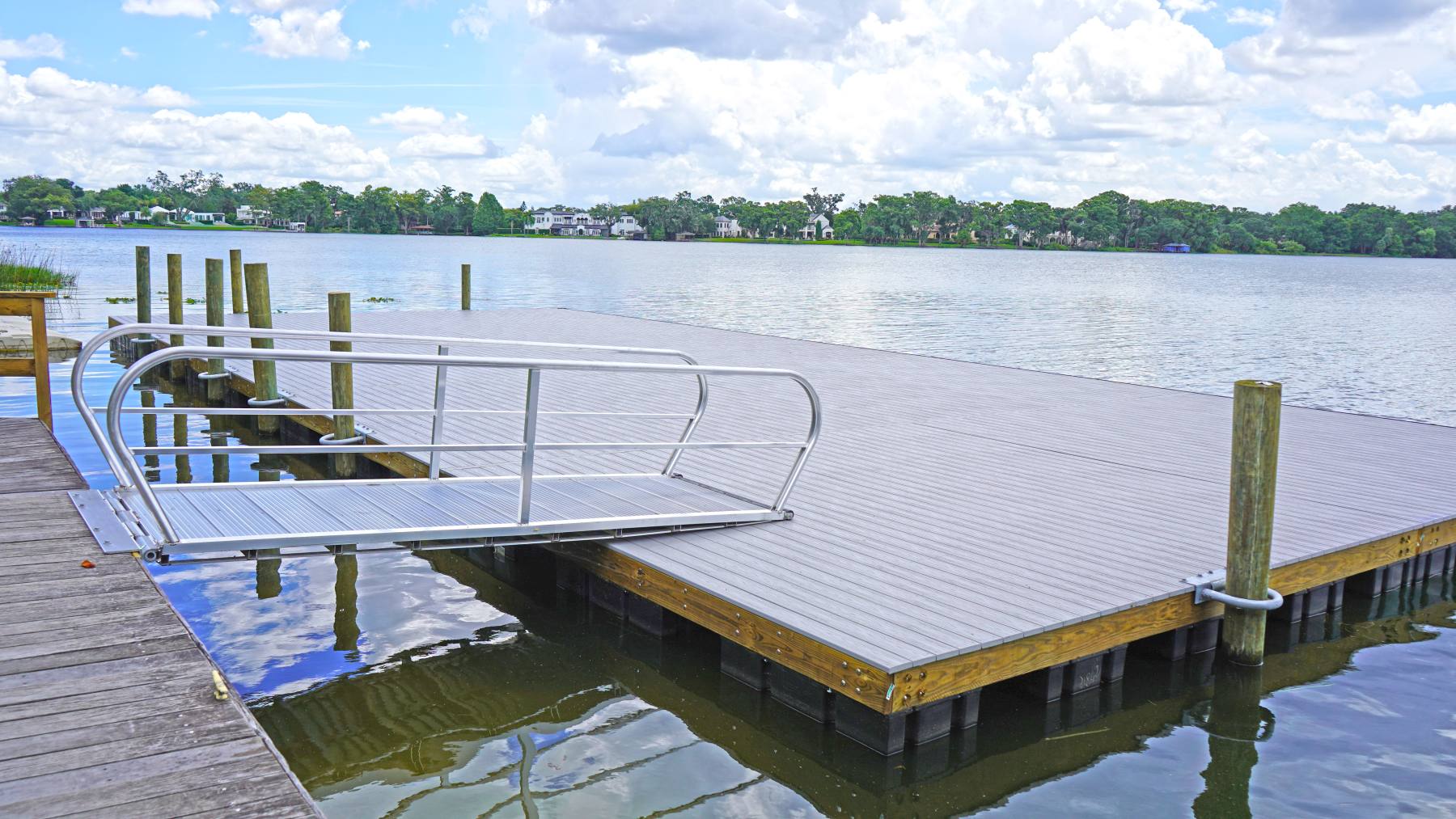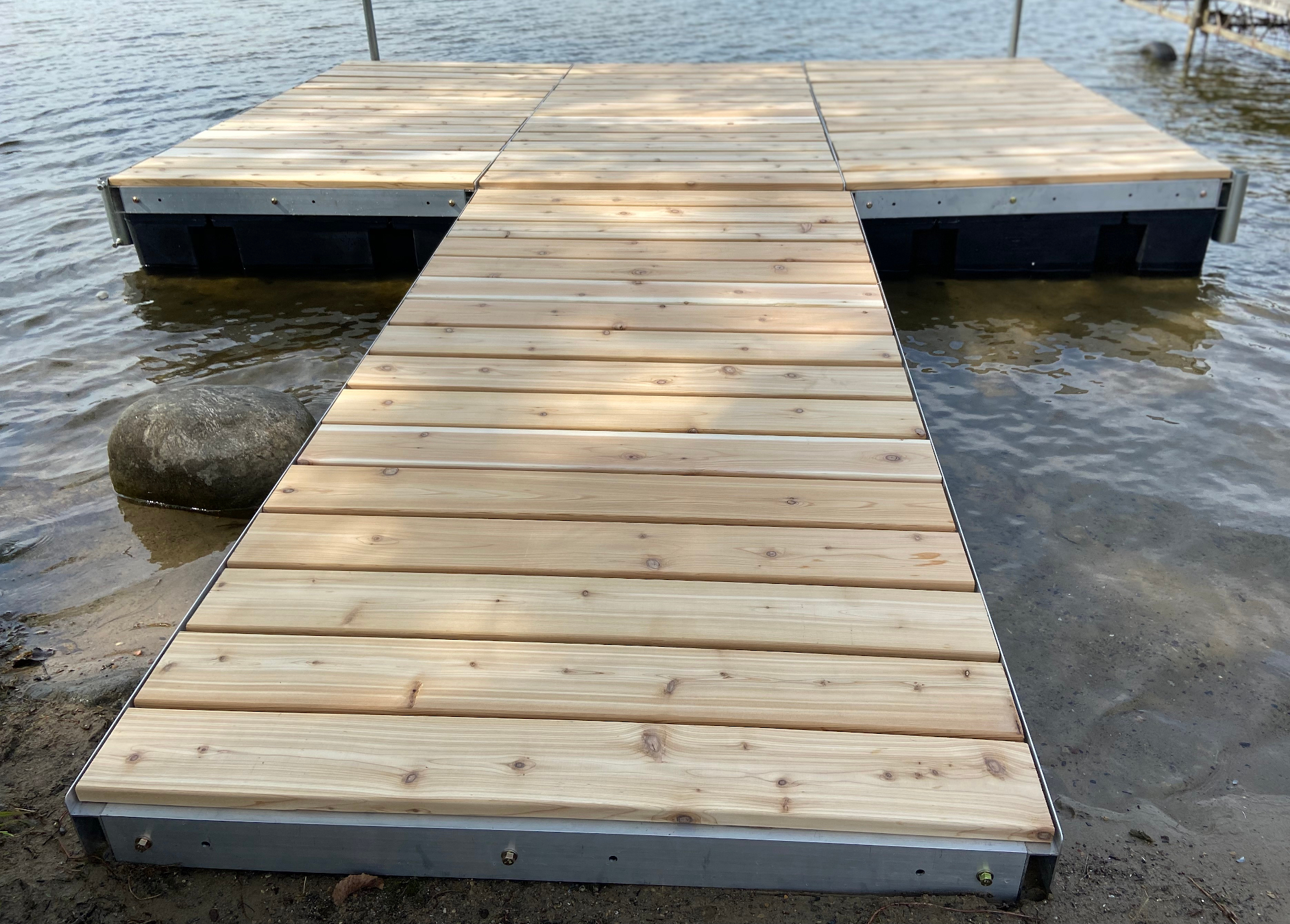How Floating Dock Company Know-how Can Raise Your Waterfront Experience
How Floating Dock Company Know-how Can Raise Your Waterfront Experience
Blog Article
Floating Docks: The Suitable Choice for Versatile Water Gain Access To
Floating docks existing an engaging remedy for a selection of water gain access to needs, using flexibility that transcends traditional mooring options. Their capability to adapt to rising and falling water degrees while guaranteeing security and safety makes them particularly beneficial for both leisure and business applications. The modular nature of floating docks facilitates personalization, providing to details requirements. Nevertheless, the nuances of installment and maintenance, together with the range of applications, warrant a closer examination to completely appreciate their prospective advantages and effects for waterway accessibility methods.
Benefits of Floating Docks
Floating docks offer numerous advantages that improve water access for different applications. Their capability to fall and increase with altering water degrees makes them especially beneficial in atmospheres with rising and fall trends or seasonal variations. This versatility makes sure that vessels can quickly tie without worry for the water's depth, offering a trusted platform for leisure, business, and commercial usages.
In addition, floating docks are frequently built from durable materials that resist corrosion, making them ideal for long-lasting usage in marine environments. Their installation is generally much less invasive than traditional set docks, lowering the environmental effect and assisting in quicker release (floating dock builder). This flexibility enables easier relocation or reconfiguration according to user needs or ecological modifications
Security is an additional vital advantage; floating docks can supply secure accessibility for people disembarking or boarding from watercrafts and decrease the danger of mishaps connected with unpredictable surfaces. Moreover, they can be created to accommodate a selection of devices, such as fenders and cleats, improving performance. In general, floating docks stand for a reliable solution for improving water accessibility across varied sectors while advertising security and environmental sustainability.

Kinds of Floating Docks
Various kinds of floating docks accommodate various requirements and settings, each created with certain functions to enhance functionality. The most common kinds include modular docks, which are composed of interlocking sections that enable very easy customization and expansion. These docks are perfect for leisure use, as they can be tailored to fit numerous boat dimensions and water problems.
One more prominent alternative is the fixed floating dock, which continues to be anchored in position yet drifts with transforming water degrees. floating dock services. This type is particularly matched for locations with marginal tidal variations, providing steady gain access to for fishing or swimming. In addition, there are drive-on docks, which include a sloped style that allows boats to easily drive on and off, making them suitable for personal boat and smaller sized vessels
For commercial applications, heavy-duty floating docks are readily available, built from reinforced products to endure significant lots and rough marine environments. Last but not least, environment-friendly floating docks use lasting materials and styles to reduce ecological effect, commonly including functions like plants to support regional wildlife. Understanding the numerous kinds of floating docks makes sure that users can select one of the most proper service for their particular requirements.
Installation Process Summary
An effective installation of floating docks calls for careful planning and focus to detail to make sure optimum efficiency and security. The first action includes evaluating the website problems, consisting of water depth, existing, and possible challenges. This assessment educates the option of the suitable dock products and layout customized to the particular setting.
Next, acquiring needed authorizations is important, as several jurisdictions have policies relating to building and construction on water bodies. Once permissions are safeguarded, the setup can proceed. Begin by preparing the foundation, which may include anchoring systems or pilings customized to the dock type and local conditions.
Complying with the structure arrangement, assemble the dock areas according to maker specifications. Guarantee that all elements are firmly secured and lined up to stand up to ecological stress and anxieties. Position the dock in the assigned location, guaranteeing it is degree and secure.

Maintenance Tips and Best Practices
After the setup process is total, continuous maintenance plays a vital function in making certain the longevity and performance of floating docks. Normal examinations need to be carried out to determine any type of signs of damage, degeneration, or wear - floating dock services. Inspect for any kind of loosened fittings, fractures, or splitting up in the dock areas, as these can compromise architectural honesty
Cleaning the dock is vital to remove particles, algae, and various other accumulation that can affect its look and safety. Utilize a mild pressure clean occasionally to maintain cleanliness without creating damage to the surface. Additionally, applying a safety sealant every few years can assist enhance longevity and you can find out more resist environmental wear.
Take notice of the mooring lines and supports, guaranteeing they are safe and secure and cost-free from corrosion. Change any type of abject components without delay to avoid risks. Seasonal adjustments may also be visit their website required; during severe climate condition, enhancing the dock or rearranging can stop damages.
Applications for Floating Docks
Floating docks offer a wide range of applications, satisfying both recreational and commercial demands. In recreational settings, they give smooth access to waterways for activities such as boating, angling, and swimming. Their flexible nature allows for installment in differing water degrees, making certain safe and steady access no matter tidal changes.
Commercially, floating docks are essential for marinas and beachfront organizations. They promote the docking of vessels, enabling efficient unloading and loading of items. Their modular design allows for simple expansion or reconfiguration to suit altering organization demands, making them ideal for boat leasings, scenic tour procedures, or fishing charters.
In addition, floating docks are used in environmental applications such as aquatic study and environment restoration. They can offer as systems for clinical researches, checking water quality, or conducting wildlife surveys without disturbing sensitive ecological communities.
In industrial contexts, floating docks are used in building jobs, giving access to hard-to-reach locations for equipment and employees. Their versatility, longevity, and very little effect on the setting make them an optimal option for a wide variety of applications, enhancing both functionality and see here availability in various water-based settings.
Final Thought
In final thought, floating docks stand for an ideal service for diverse water accessibility requires, owing to their flexibility, resilience, and modular design. Floating docks serve as a beneficial possession for recreational, industrial, and ecological jobs, guaranteeing dependable accessibility to waterways and advertising lasting techniques in water environments.
Floating docks existing a compelling solution for a range of water gain access to needs, offering flexibility that goes beyond typical mooring choices.Floating docks deal numerous benefits that enhance water accessibility for different applications. Overall, floating docks stand for a reliable solution for enhancing water access throughout diverse industries while promoting safety and ecological sustainability.
One more popular option is the stationary floating dock, which stays anchored in location however floats with changing water degrees.In conclusion, floating docks represent an optimal service for diverse water accessibility requires, owing to their flexibility, toughness, and modular design.
Report this page